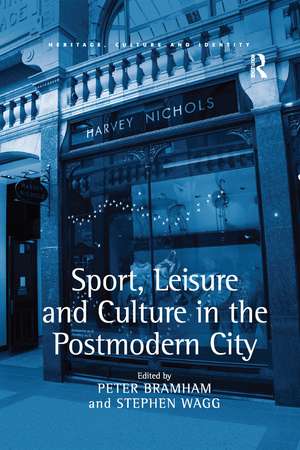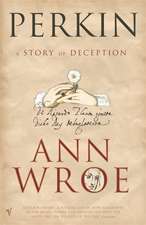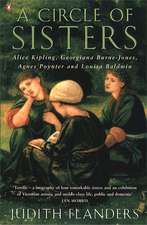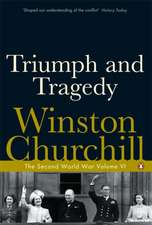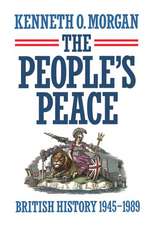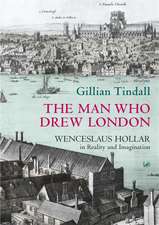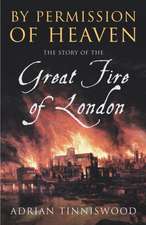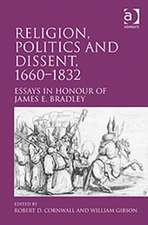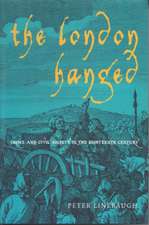Sport, Leisure and Culture in the Postmodern City
Autor Stephen Wagg Editat de Peter Bramhamen Limba Engleză Paperback – 26 oct 2016
| Toate formatele și edițiile | Preț | Express |
|---|---|---|
| Paperback (1) | 324.16 lei 6-8 săpt. | |
| Taylor & Francis – 26 oct 2016 | 324.16 lei 6-8 săpt. | |
| Hardback (1) | 822.36 lei 6-8 săpt. | |
| Taylor & Francis – 28 noi 2009 | 822.36 lei 6-8 săpt. |
Preț: 324.16 lei
Preț vechi: 424.46 lei
-24% Nou
Puncte Express: 486
Preț estimativ în valută:
62.04€ • 64.53$ • 51.21£
62.04€ • 64.53$ • 51.21£
Carte tipărită la comandă
Livrare economică 15-29 aprilie
Preluare comenzi: 021 569.72.76
Specificații
ISBN-13: 9781138272521
ISBN-10: 1138272523
Pagini: 232
Dimensiuni: 156 x 234 x 14 mm
Greutate: 0.45 kg
Ediția:1
Editura: Taylor & Francis
Colecția Routledge
Locul publicării:Oxford, United Kingdom
ISBN-10: 1138272523
Pagini: 232
Dimensiuni: 156 x 234 x 14 mm
Greutate: 0.45 kg
Ediția:1
Editura: Taylor & Francis
Colecția Routledge
Locul publicării:Oxford, United Kingdom
Notă biografică
Dr Peter Bramham is Reader in Leisure Studies and Professor Stephen Wagg is Reader in Sport and Society at Leeds Metropolitan University, UK
Recenzii
'A detailed and perceptive dissection of the postmodern transformation of the English city of Leeds, this book offers some fascinating insights into the complex processes of contemporary urban change and how its impacts are experienced by people who live in post-industrial cities. An authoritative, assured and highly readable account.' Stephen Williams, Staffordshire University, UK ’This text would be an interesting read for anyone who has interests in urban development and the cultural changes that may come along with it. Political aspirations and economic imperatives, intertwined with physical space and local/migrant cultures and races, show how Leeds provides a good example of an industrial city reinvented into a postmodern space.’ Annals of Leisure Research 'Sport, Leisure and Culture in the Postmodern City is an engaging account and affords a detailed analysis of the key historical, sociological and economic drivers that have and look to continue to shape Leeds as a city.' Australian Planner
Cuprins
List of Contributors; Chapter 1 Introduction, Peter Bramham, Stephen Wagg; Chapter 2 Leeds — Becoming the Postmodern City, Peter Bramham, John Spink; Chapter 3 Cranes Over the City: The Centre of Leeds, 1980–2008, Janet Douglas; Chapter 4 Mission or Pragmatism? Cultural Policy in Leeds Since 2000, Jonathan Long, Ian Strange; Chapter 5 The History Boy: Made in Leeds, Peter Bramham; Chapter 6 Leeds and the Topographies of Race: In Six Scenes, Ben Carrington; Chapter 7 Nowt for Being Second: Leeds, Leeds United and the Ghost of Don Revie, Stephen Wagg; Chapter 8 Dreams of Parkside and Barley Mow, Karl Spracklen; Chapter 9 “Off with their Headscarves, on with their Football Kits?”: Unveiling Myths and Exploring the Identities of British-Muslim Female Footballers, Aarti Ratna; Chapter 10 Barcelona of the North? Reflections on Postmodern Leeds, Stephen Wagg, Peter Bramham;
Descriere
Illustrated by an interdisciplinary study of Leeds, a typical 'postmodern city', this volume examines how such cities have reinvented themselves - commercially, politically and spatially - over the past two decades. The work addresses issues like cultural policy, city-centre development, sport, leisure and identity, and explores different urban processes in relation to changing configuration of class, gender and ethnicity in the postmodern city.
